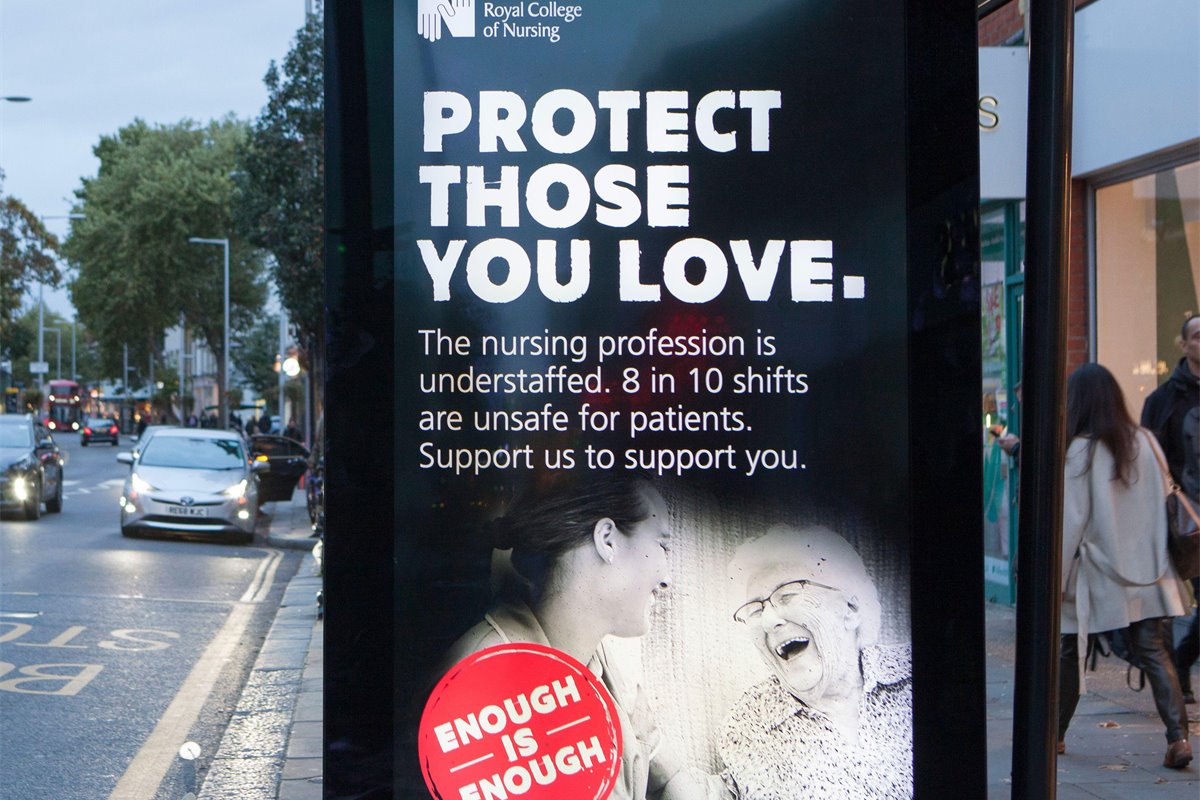

(Photo Credit: Anna Watson/Alamy Live News)
The Royal College of Nursing (RCN) has announced strikes on December 15 and 20, which will affect NHS trusts across England, Wales and Northern Ireland.
They include Kings College Hospital and Imperial College Healthcare, besides other major centres in London, Birmingham, Liverpool, Newcastle and West Yorkshire. All NHS centres in Wales except the Aneurin Bevan and all NHS centres in Northern Ireland will also be affected. The strike was triggered by the Government calling the RCN’s pay rise demands “unaffordable”.
The list of hospitals partaking of the strike can be found here.
Life preserving care will continue to be provided on the strike days, while industrial action will take place from 8am to 8pm.
NHS Associate Director of Nursing, Diane Palmer, said: “Most nurses work very long hours, often staying late unpaid on a very regular basis…and now they are being demonised as greedy for asking for a real pay raise since 2010.”
London based physician Dr. Sridhar Kamnath said that according to the BMA figures, “pay increases for doctors and nurses have not been keeping up with inflation, making doctors and nurses effectively worse off by at least 20 percent if not a third in real terms earnings.”
According to the RCN, in spite of the government announcing a pay rise of £1400 in early 2022 for all NHS workers, nurses are still badly off with inflation taken into account. The BBC reported that the average pay of nurses fell by six percent between 2010 and 2021 when inflation is calculated.
The RCN demanded a pay raise of five percent higher than the inflation rate, which amounts to a total of 17.6 per cent rise in pay, according to the Health Secretary – a figure which has been contested by the RCN General Secretary Pat Cullen.
This strike is set to be the biggest protest in NHS history and is a culmination of many issues that affect the nurses.
Palmer spoke of how the NHS is severely understaffed, having 50,000 vacancies.
She said that many are “doing the jobs of 2-3 staff members each shift, without breaks,” all in addition to “low pay, high stress, facing assault, witnessing death and being unappreciated by the public.”
An NHS worker William said that the working conditions along with the low wages are “making the NHS unattractive for those considering a career in healthcare.”
Health Secretary Steve Barclay publicly stated that the strikes are “in no one’s interest,” and the RCN’s demands “would turbocharge inflation” besides negatively impacting patient care.
But, the national nurses’ strike – the first in RCN’s 106-year history – is set to take place regardless.
Palmer said: “I’m due for surgery…and even if the op gets cancelled, I will still support it because I see the bigger picture.